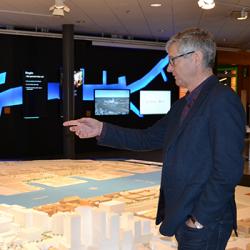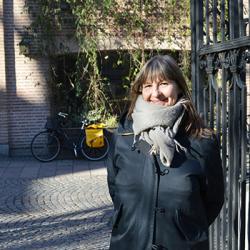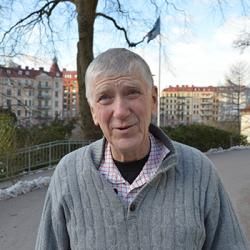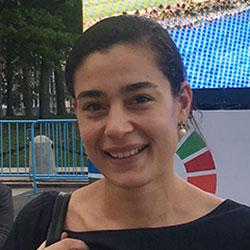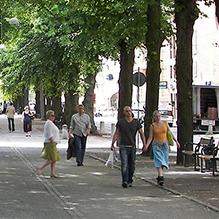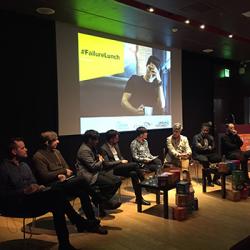A story of what came next
Research-based game highlights climate change issue in Gothenburg
A research report on climate and consumption calculations has both left its mark on Gothenburg City’s climate work and reached out to young people in the region through the game Future Happiness Challenge. The aim of the game is for children and young people to become aware of climate-related challenges.
The report comes from the project Well-being in Sustainable Cities (WISE) which took place within Mistra Urban Futures. It has had an impact on both the local and regional environmental strategy and has resulted in the Future Happiness Challenge which is a digital game about happiness and the climate impact and is aimed at secondary school pupils.
The Future Happiness Challenge is quite simply based on being as happy as possible while warning as strongly as possible about climate issues. The game is based on the research report Low-carbon Gothenburg 2.0: Technological potentials and lifestyle changes, which was written by Jörgen Larsson from Chalmers and Lisa Bolin, who now works at RISE (Research Institutes of Sweden). The report describes how the technological progress and lifestyle changes required for the desired climate adaptation affect our well-being. It also addresses what it is in our life that actually makes us happy.
Reached out to pupils and teachers
It is through the game that our research can reach out to pupils and teachers in an easily accessible way.
“The game is realistic. You make different lifestyle choices through your character. Sometimes you opt for reduced emissions and that makes you happiest and sometimes it may be vice versa. We wanted to use the game to show the climate adaptations that we need to make at an individual level to reduce our emissions of greenhouse gases and show how they affect our well-being,” says Jonas Franzén, who is working on education at the The Göteborg Region Association of Local Authorities (GR). He thinks that the game is good in that it highlights the climate change issue through experiences. “It shows how complex happiness is, while also showing what you can do to reduce your emissions,” he says.
"The aim is for it to be used as a teaching aid in many schools"
So far more than 850 pupils have tried out the game at the workshops that GR Education has held. Some 50 workshops have been held, one of which took place during the International Science Festival in Gothenburg in April 2018.
“The Future Happiness Challenge has been widely distributed. The game can be found in our games databases in the Gothenburg region and in the App Store. It is easily accessible and is used by teachers and pupils. The aim is for it to be used as a teaching aid in many schools,” says Franzén.
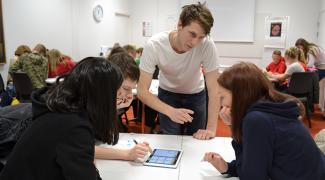
Alex Parmar, Emmy Jansson, Isabella Edgren and Victor Müller from Ahlafors Fria Skola are some of the pupils who tested the game during the International Science Festival. “It was hard, but fun,” they say.
In the group discussion, which gave the pupils lessons about the environment and things to bear in mind in the future, after the quartet and all their fellow pupils had played the game, it emerged that the level of happiness and climate change emissions that the pupils experienced was different. “It’s possible to have low rate of climate-change emissions and still be happy. What creates real happiness in the game, just as in real life, are things associated with friends and finding partners; things that have to do with relationships,” Franzén says.
Findings particularly relevant for the municipality’s climate strategy
In the environmental strategies of West Sweden, research into the relationship between the climate impact and quality of life have also had a clear political impact. Larsson works as an assistant professor at Chalmers and has had an important role as a project manager for the WISE sub-project Low-carbon transitions for Gothenburg: Potentials and well-being consequences. He wishes to highlight the good cooperation between the environmental management at the City of Gothenburg and Chalmers University of Technology. According to him, this made the findings particularly relevant for the municipality’s climate strategy.
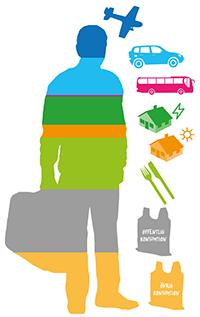
“The findings show the climate impact of the average Gothenburger. By communicating the ‘climate man’ concept a large number of people have studied the findings in terms of the areas – mainly food, air travel and cars – which generate substantial emissions,” says Larsson.
Potential for change
Ulf Kamne, a municipal commissioner in Gothenburg and former chairman of the Planning Committee, is also satisfied with what the project achieved. “I can see that there is some potential for change when well-being is included as an aspect. Well-being will change attitudes,” he says.
What can a greater focus on well-being and the climate change issue lead to? “Resistance based on an unwillingness to sacrifice a lifestyle, for something that is perceived to be worse, is reducing. A willingness to adapt to achieve a higher quality of life may be a new driving force that increases the potential for success,” says Kamne.
"City of Gothenburg was a pioneer in having consumption-based climate goals"
Larsson highlights the direct impact that WISE and its sub-projects have had. “The persons involved from the environmental management later worked on the municipality’s climate programme and the findings influenced its design, particularly since the City of Gothenburg was a pioneer in having consumption-based climate goals (i.e. climate goals which affect the emissions of Swedes inside and outside Sweden’s boundaries), alongside climate goals based on the geographical area represented by the City of Gothenburg,” says Larsson.
This resulted in the administrative services working on school meals focusing on reducing the consumption of meat and the administrative services involved in tourism working on promoting a climate-smart choice of the means of transport and on holidaying at home, termed a ‘staycation’.
Regionala initiatives
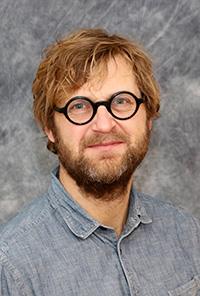
Larsson considers that the regional climate strategy is affected by reports such as those produced within WISE. “The regional climate strategy is focusing, among other things, on two priorities called ‘More vegetables on the plate’ and ‘Climate-smart meetings and holidays’,” says the project manager.
This has subsequently had an impact on the region’s tourist body the Tourist Council of Western Sweden, which is working actively on the climate change issue. The region and City of Gothenburg are now collaborating with the University of Gothenburg and Chalmers University of Technology on a new initiative which was launched on 30 May 2018 and is called Climate-smart Holidays.
Project facts
Project title: Well-being in Sustainable Cities
Project period: May 2012 – December 2015
Partners: Chalmers University of Technology, the City of Gothenburg, the Swedish Transport Administration and Region Västra Götaland
Financiers: Mistra Urban Futures, the Swedish Research Council for Environment, Agricultural Sciences and Spatial Planning, Region Västra Götaland and the Swedish Transport Administration
